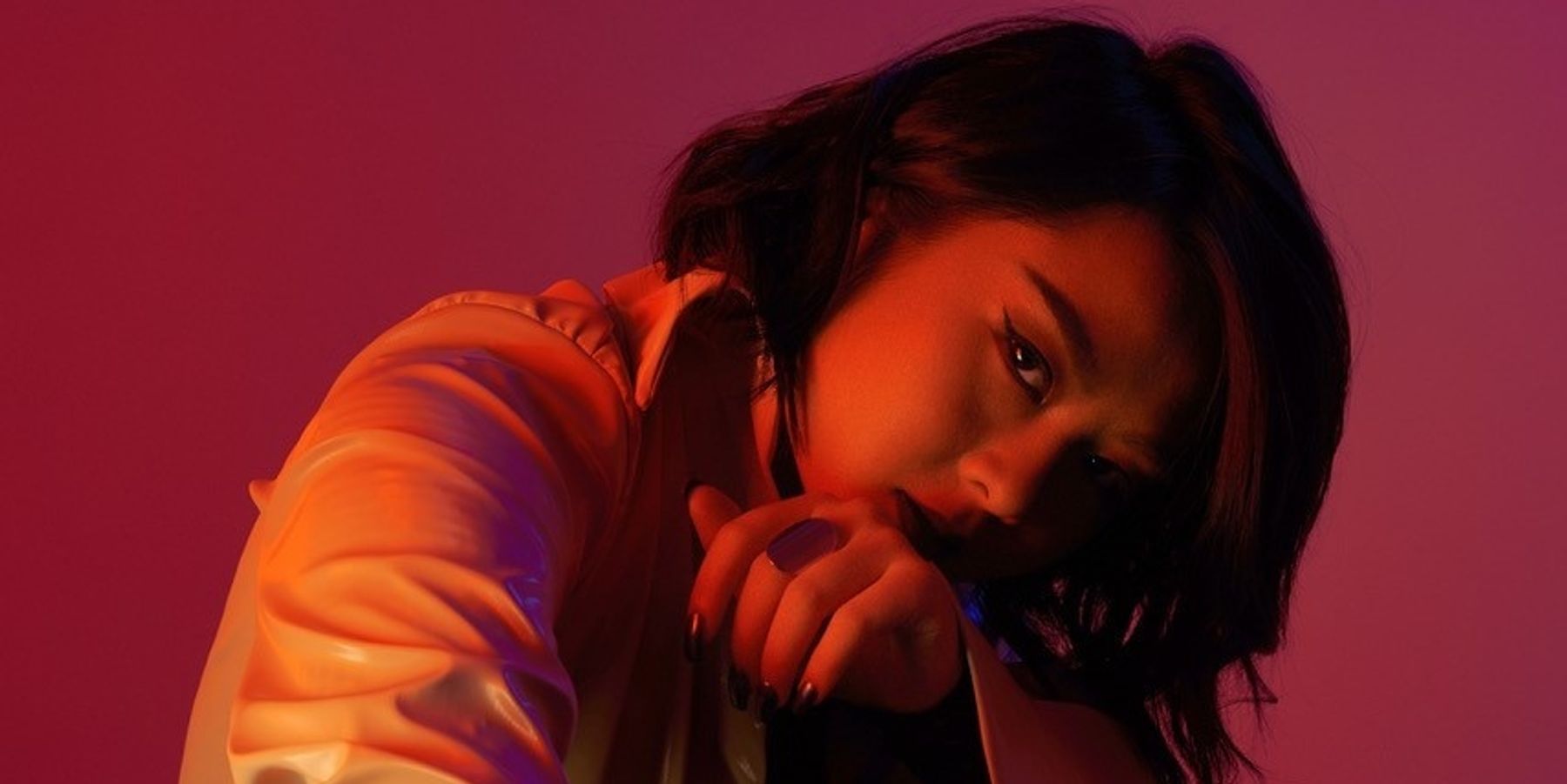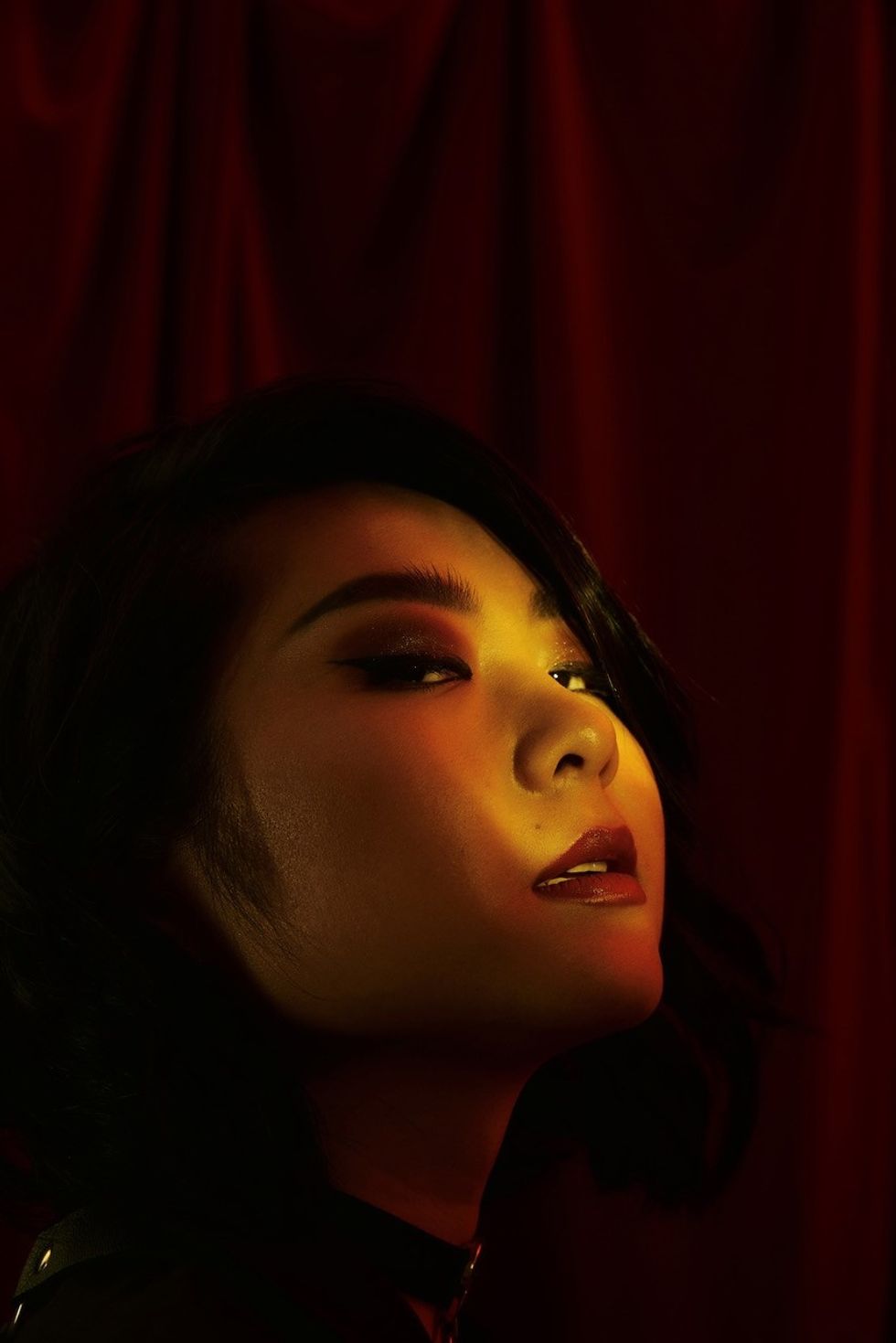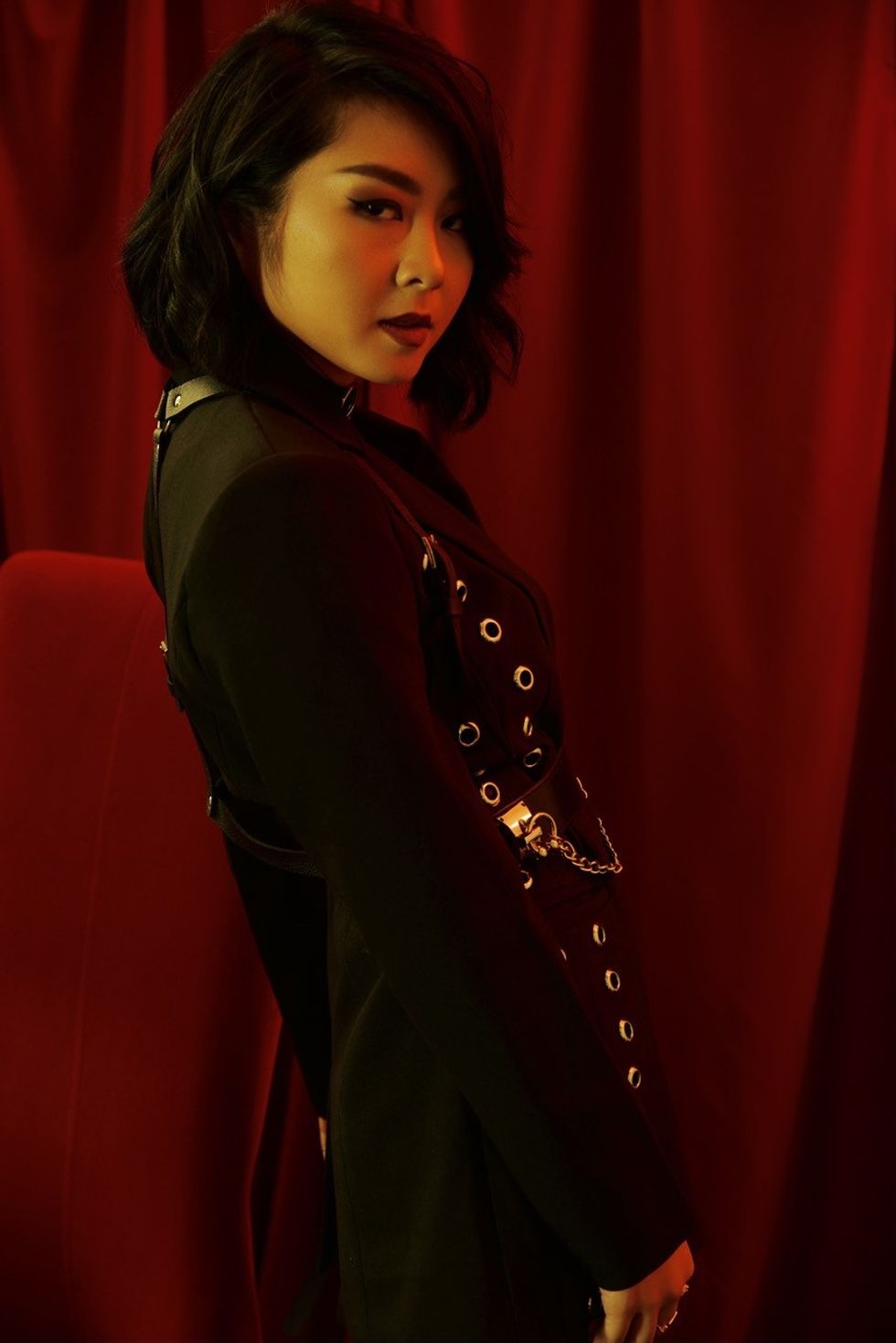
When Tuimi, a Vietnamese singer-songwriter based in Ho Chi Minh City and Berlin, was three years old, she sang karaoke at family gatherings. Some time after, while being raised in Dresden, Germany, she was classically trained for piano. But it wasn't until Alicia Keys came out with "Fallin'" that music really clicked for her. "She was a confident, beautiful woman who made piano look and sound cool," she says. "I knew I wanted to be like her."
Fast forward to age 19, and the singer got a lucky break after posting a video of herself singing on Facebook. An A&R rep from Universal reached out and she entered the world of songwriting camps. That boot-camp industry training only further informed her artistic vision, and helped her make international connections that would strengthen her music.
Related | Hayley Kiyoko Knows What She Needs
Now, at 25, Tuimi is ready for her closeup. Her debut single, "Purpose," has received over a half-million streams and a Brazilian fanbase — not bad for an independent artist on her own label who manages her image, sound, and marketing. The rising singer premieres the "Menina" video today on PAPER, a coming-out statement of sorts that places her in a canon of global queer pop musicians from Hayley Kiyoko to Troye Sivan, who have built wildly engaged fanbases on their truth and identities.
Tuimi, a trilingual woman who speaks Vietnamese, German, and English, decided to use "menina," a Portuguese word referring to a mysterious "girl" or "woman" in a romantic context, as the hook and title for her new song, because, as she says: "Why not?" Given her eclectic background as a woman and as a songwriter, Tuimi understands that language is global, and when used inclusively, it is a powerful tool for connection.
Everything about "Menina" blends Tuimi's vast, international influences. The song was produced by Parisian music production duo, Trackstorm x Ren Hook, and co-written in Berlin with Moli and Vivien. It has flavors of R&B and trap with a seductive pop sensibility. "Can I be that drink that you been sippin' on?" she teases. "Out of all these girls you are the only one." The video was produced by young creatives in Hanoi and Ho Chi Minh City, and features local Saigon Drag Queens Gia Ky and Tien Ngoc.
We chatted with Tuimi on the phone in Saigon, where she's been playing small club shows and prepping her debut album. We talk Asian representation, queer identity, and K-pop.

You sort of live between worlds, as a Vietnamese queer woman who splits time between Europe and Asia, and your sound would fit very well on American radio. What's it been like for you?
I'm in Saigon right now, and it's one of the cities where homophobia and racism has no place. This kind of reminds me of New York a bit to be honest, because I also lived there for almost a year. The culture here molds acceptance for queerness. What I'm seeing is people who have realized, if a person loves another person of the same sex, well does it do harm to myself? People seem to let people live their lives. Plus queer people drive most creative industry here.
We are definitely in a time where queer narratives are visible and expanding. At one point in music, it was revelatory to use the pronouns of your partners. It still is. But where are you with that?
To me, it's not a priority because all my life when anyone would come up to me and ask me about my sexuality, my answer would always be I love people, because I know that all kinds of partners that I've had so far, male or female or other people of color, any type of people. I get attached to a person from their personality first, and that's where I'm standing. This song as a coming out wasn't on purpose. I just felt that writing a song about a woman in the perspective of another woman where especially in the type where that's not totally obvious unless you know the language. I was actually thinking whether I should out my sexuality in the song or leave it open for discussion. But then I was like, why not? It's almost 2020, we are in this time where I feel like it's a safer time to be yourself than it was 30 or 40 years ago. I also want to show other Asian girls out there that it's okay to be who you are. I know girls in Vietnam who have been abandoned by their families for coming out. This is my way of standing with them, too.
"I also want to show other Asian girls out there that it's okay to be who you are."
So "menina," the title of your song, is a Portuguese word that translates to "girl" or "woman," but can be applied in a romantic context. Why Portuguese? Do you speak it?
It's already confusing as fuck that I'm a Vietnamese girl from Germany and singing in English, I just thought why not just put Portuguese in it. And also from my first single "Purpose," I gathered a couple of very supportive Portuguese friends from Brazil, and I also feel like that the Brazilian fans deserved that kind of song, especially with the LGBT community in Brazil, and the politicians on top right now. So I just thought why not from some random German-Asian chick, because my whole project is already a question mark, and now bringing in this Portuguese and Brazilian queer twist into it makes it more interesting.
So you're aiming for global inclusion?
Exactly. Language has built bridges and I feel it most here in Vietnam because I'm pretty fluent in Vietnamese and I feel like I can communicate with local people here much better just based on my Vietnamese skills instead of speaking to them in English. There is this language barrier and if you can break this barrier with language itself, it's something so beautiful. And I'm aware of the fact that in the song my pronunciation of "misteriosa" is not perfect, but if Justin Timberlake can sing "Senorita" the way he sang it, why the fuck can't I do it? He's just like some white dude, you know what I mean?

Who are some of your early influences and what made you realize that you wanted to pursue music?
The first person to really give me that feeling of "okay when I grow up I want to be like this person" was Alicia Keys when i saw her as a six year old and saw her music video for "Fallin'," because back then I just started to take piano lessons, and then this music video had come out, and I knew then I wanted to be like her. She was a confident, beautiful woman who made piano look and sound cool, and it gave me a whole different view on the instrument. Karaoke was also a big part of my childhood, being from a Vietnamese family.
What has it been like to play shows in your native country?
Singing in Vietnam has been a very interesting experience, because I've been playing a lot of clubs, and a lot of people like to get wasted on laughing gas balloons [laughs]. I've had some gigs where people are paying attention, and I see it's a new thing for them to see a Vietnamese person singing in English without a Vietnamese accent. That's why and how I got more and more shows here, because I stand out. I recently had a show and after these two girls who were maybe 12 or 13 came up to me and said that seeing me play in English made them want to improve their English and study more, and that really touched me. When I was younger, I didn't have many Asian artists to look up to. Now, there's a huge K-Pop scene, and you have [collectives like] 88Rising, which is all really great. There hasn't been anyone quite like me to come around yet, especially in the Western world, and that's something I find really exciting.
Follow Tuimi on Instagram (@tuimi._)
Photography: Kyanh Tran